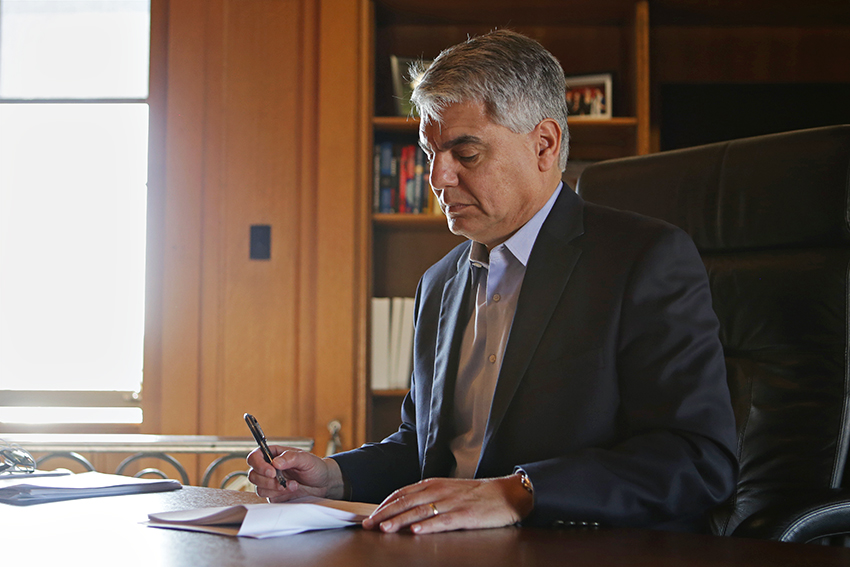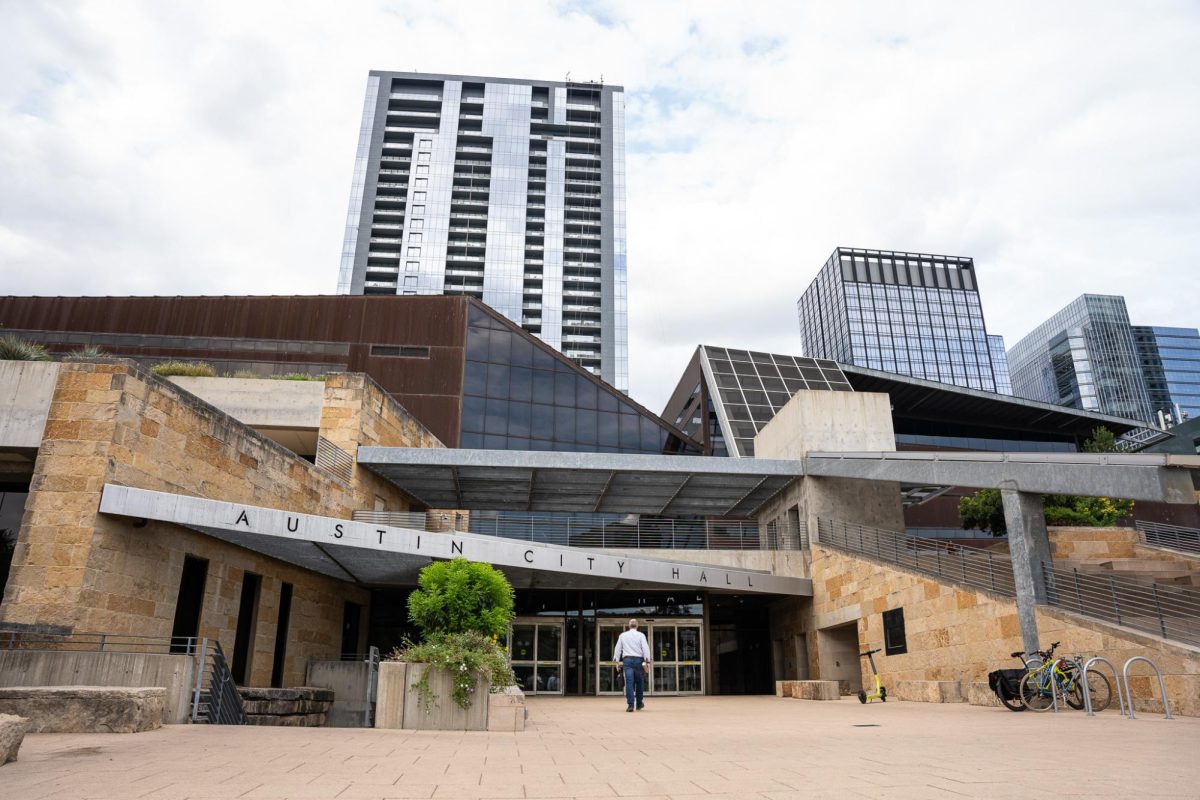UT President Gregory Fenves spoke about plans for new University housing, his goals for the 150th anniversary in 2033 and UT’s free speech policy at the State of the University on Wednesday.
During the speech, Fenves said he plans to have enough University-owned housing to accommodate all first-year undergraduates and a new council to brainstorm ideas about the future of the University. The Daily Texan sat down with Fenves to discuss some of these initiatives.
The Daily Texan: What are your goals for the upcoming school year and how did the initiatives that you announced today help advance toward those?
Gregory Fenves: We have a number of goals for the year, but one of the biggest ones is thinking about the future. (We’re expecting to) form the Council for TEXAS Impact (for) faculty, student leaders (and) staff representatives to think about what do we want this University to be doing in 10 years … and what we should be doing as a flagship university in the state of Texas.
DT: What are some of the goals that you’re looking for the Council for TEXAS Impact to establish? Are there any specifics?
Fenves: (The Council for TEXAS Impact) is not a strategic planning committee. We’re not asking them to make recommendations on operations in the University … The way I’ve posed it is, in 2033 … what’s going to be important? What are the big ideas that we can start working on now?
DT: Why did the new housing initiatives become a topic? Why are these changes being made?
Fenves: It’s obvious Austin is no longer a low-cost place to live … As a result of our history being in a low-cost town, we haven’t built much University housing … We don’t have that much space on campus. We’re in the middle of a major urban city … so it may not all be University housing. It may be public-private partnerships or maybe new ways to finance housing. The traditional approaches of how (other) universities just build dorms — these simply won’t be effective solutions.
DT: How will this initiative be funded? And is it going to impact the cost of living at UT-Austin if you’re an on-campus resident?
Fenves: Typically, housing operates as a business, so they charge room rates that covers the cost. That’s part of the planning process … Those are some complicated questions that we need to do a thorough study on.
DT: How does the recent change in free speech policy on campus relate to what could be considered hate speech or offensive speech? Is that also allowed on public property?
Fenves: Free speech rights are defined by courts. We don’t define those. We follow the case law on free speech. In the court, there is no recognized hate speech, so as a university, we don’t have policies on hate speech. To answer your question briefly, it has no effect on that. Speech is speech, even things that you disagree with … The courts have been very clear that that is protected.





















